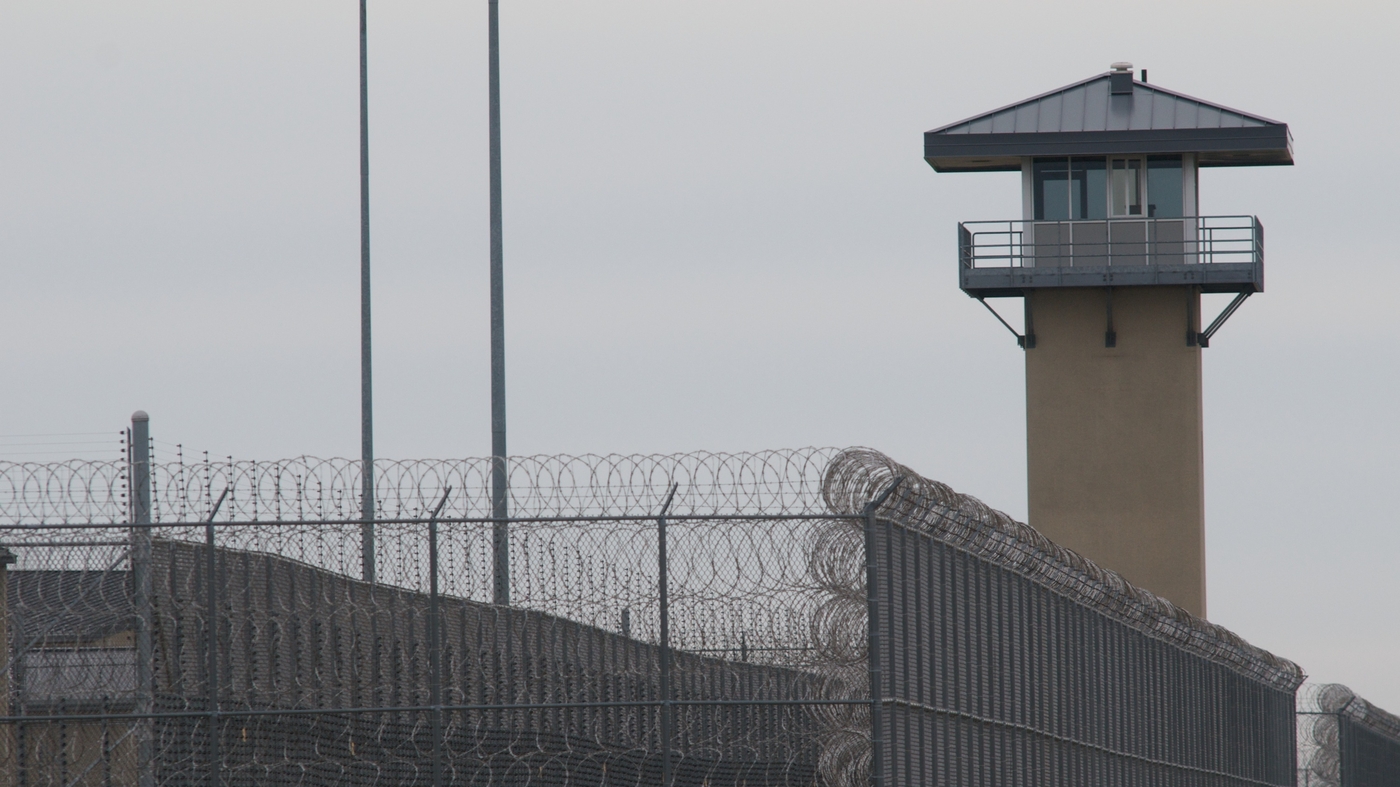
A guard tower and prison yard at the Thomson Correctional Center in Thomson, Ill., in 2009. There have been eight deaths at Thomson since 2019, making the facility one of the deadliest federal prisons in the country. David Greedy/Getty Images hide caption
toggle caption
David Greedy/Getty Images

A guard tower and prison yard at the Thomson Correctional Center in Thomson, Ill., in 2009. There have been eight deaths at Thomson since 2019, making the facility one of the deadliest federal prisons in the country.
David Greedy/Getty Images
The federal Bureau of Prisons is closing the notorious Special Management Unit at Thomson penitentiary in Illinois, after frequent reports of violence and abuse.
An investigation last year by The Marshall Project and NPR found that Thomson had quickly become one of the deadliest federal prisons, with five suspected homicides and two suspected suicides since the unit opened in 2019. The report also uncovered conditions that stoked violence, where volatile prisoners were locked down together in small cells for nearly 24 hours a day, often despite repeated warning signs.
A Bureau of Prisons spokesperson said in an email on Tuesday that they “recently identified significant concerns with respect to institutional culture and compliance with BOP policies” at Thomson, requiring “immediate corrective measures.” Officials would not comment on where those previously held at the SMU at Thomson were being transferred. Those housed in the general population and the minimum security camp will remain.
The move comes just weeks after another man at Thomson, 32-year-old Victor Gutiérrez, was found unresponsive in the prison and died, according to a Justice Department press release. The department has not released his cause of death.
Men at Thomson have also reported abuse at the hands of staff, including being placed in painful four-point restraints for hours or days at a time. Prompted by The Marshall Project and NPR’s reporting, the Department of Justice’s Inspector General launched an investigation into the deaths and alleged mistreatment.
The special management unit was originally housed at Lewisburg Penitentiary in Pennsylvania, a facility known for similarly high rates of violence among prisoners and shackling by staff. It’s unclear whether the unit, which is meant to separate the most disruptive people in federal prison from the general population, will reopen elsewhere. A federal official familiar with issues at the prison said men transferred from Thomson will be housed at “comparable security levels in a different facility.”
Corrections officers at Thomson have been calling for the warden’s firing in recent months, pointing to a high rate of staff vacancies and sexual assaults on officers. Union officials say there are 100 empty positions at the prison, despite multiple job fairs and hiring bonuses.
Jonathan Zumkehr, president of Local 4070 of the American Federation of Government Employees, the union that represents Thomson staff, said he was told jobs would not be lost at the prison, but that vacant positions would not be filled. “This is a disservice, and it will devastate the local community,” he said.
Thomson was built in 2001 as an Illinois state prison, but sat empty for years until it was bought by the Justice Department. Lawmakers including U.S. Senators Dick Durbin and Tammy Duckworth, both Illinois Democrats, cheered its opening as a way to bring hundreds of jobs and millions in revenue to the region. Both have since called for more oversight of the prison.
“We have been informed by the Department of Justice that Bureau of Prisons leadership is taking corrective action to address deeply troubling findings of a recent review of the facility,” Durbin and Duckworth said in a joint statement on Tuesday. “We were assured by the Attorney General that these changes are temporary and that Thomson will continue to play an important role in the Bureau of Prisons system.”
Attorneys and advocates for men at Thomson said the closure was “long overdue,” but concerns remain. “Those who have been transferred [out] are profoundly relieved,” said Jacqueline Kutnik-Bauder, deputy legal director of The Washington Lawyers’ Committee for Civil Rights and Urban Affairs, a legal nonprofit that has sued the Bureau of Prisons over treatment in the Special Management Unit. “Our primary concern now is that this is simply relocating a problem. Thomson is particularly horrible, but there’s a culture in the BOP that needs to be addressed and changed.”

